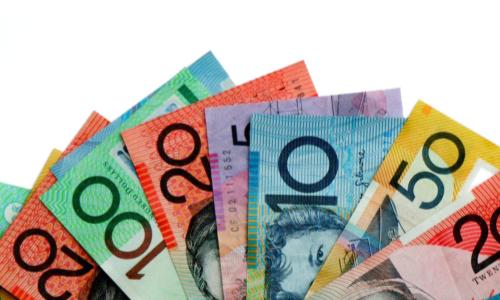Will Australia Adopt Cashless Gambling?

Well, here's a story that has nothing to do with our South African Thunderbolt online casino gaming (!!!), but we'd like to report on it because we feel it's significan for all of us to know what's going on in our "neighboring countries" vis-a-vis gaming.
An in-depth inquiry into extensive and blatant money laundering at Australian state casinos may be marking a new era in Australia’s New South Wales as the Commission of Inquiry considers whether to mandate that gambling in the state be done via a cashless gaming card. The proposed action, along with enhanced data collection measures, will help local authorities monitor the money passing through the casinos as well as through online casinos Electronic Gaming Machines (EGMs), clubs and pubs.
Cleaning Up Shop
The NSW Crime Commission was established to investigate the nature and extent of money laundering activities that are alleged to have occurred at the Crown and Star casinos. The money is said to have flowed through poker machines which allowed criminals to launder illegal funds and make it appear that the money had been acquired legally.
In 2020-2021 NSW poker machines turned over $95 billion and it is estimated that much of that amount came from criminal endeavors. The venues hosting these machines didn’t report suspicious transactions.
According to inquiry evidence, people who were identified with criminal elements played poker machines with money obtained from criminal enterprises including drug and human trafficking. Efforts to control these movements of cash were stymied because no effective controls or data collection to identify or prosecute those involved existed.
According to NSW Crime Commissioner Michael Barnes, criminals saw the poker machines as the last remaining safe haven where they could clean cash from criminal activities. “At the moment serious offenders can enter NSW pubs and clubs, sit down next to patrons in gaming rooms, and openly feed large sums of cash from their crimes into poker machines with no real fear of detection. “The lack of traceable data collected by EGMs means the exact scale of this criminal activity is impossible to determine but it is clear from our investigations it involves many billions of dollars every year. These basic reforms will help exclude vast sums of dirty cash that are primarily the proceeds of drug dealing. I’m sure venues won’t argue they should keep receiving that.”
Recommendations
The NSWCC recently publicized its recommendations for restricting electronic gaming machines. The recommendations focused on two main forms of money laundering – that which involves the use of “dirty” cash for gambling and that which uses EGMs to deposit “dirty” cash and then collect the “clean” cash that is delivered in payouts.
The Commission recommended that the government introduce mandatory cashless gaming system with the goal of minimizing EGM-related money laundering and that EGMs collect standardized data on players which will make it easier for the government to flag money laundering.
Pokie Machine Operators React
Pokie machine operators, led by ClubsNSW, the representative body for clubs in NSW., has come out swinging on the issue. Such a move, says the organization, would be devastating for much of its 1000 member clubs across the state. ClubsNSW argues that changing the machines to accommodate the card would cost more than $800 million, would cost thousands of jobs and would derive many clubs of the majority of their income.
At any time, ClubsNSW would attract attention and find a sympathetic ear in government but this is especially true in an election year. ClubsNSW is powerful and has an extensive reach which it can flex in the lead-up to coming elections. According to ClubsNSW, the report itself supports the objection that criminals aren’t using pokie machines to clean money.
ClubsNSW chief executive Josh Landis said “The NSW Crime Commission found that using gaming machines to clean large quantities of dirty money is ‘high risk and inefficient’ and that the practice is not widespread. This report vindicates clubs and their 53,000-plus employees across the state. It confirms clubs do not aid or abet money laundering.”
Landis further pointed out that the investigation disclosed that criminals were putting billions of dollars in proceeds from crime through poker machines but found no evidence that pokies were being used to clean large amounts of dirty cash on a grand scale. For the most part, criminals using the machines were like any other player – playing and winning or losing.
Politics
At the end of the day, whether the Commissions recommendations for cashless pokies machines will be accepted comes down to….politics.
NSW Labor has already announced that it won’t commit to a cashless gambling card, despite the proposal from the Crime Commission. Labor leader Chris Minns announced that he won’t back the plan despite pressure from cross-bench MPs. Premier Dominic Perrottet, a Liberal, says that he will consider the proposal but he won’t make any decisions until they consult with the operators, including with ClubsNSW.
Perrottet has called for “far-reaching reforms,” saying “there are implications as a result of those reforms. But we’re open-minded about it”.
Minns is adamantly opposed to the recommendation because, he said, outfitting the machines to accept cards would be cost-prohibitive. “It’s difficult for the New South Wales opposition to navigate through that difference of opinion or that difference of fact," he said.
Alex Greenwich, independent MP for Sydney and a leading advocate for exercising more control over the gambling industry, is single-mindedly focused on bringing the pokies machines under scrutiny.
It’s “critical,” said Greenwich, that clubs and pubs don’t become the default venues for washing dirty cash. “The last thing we want is for the adoption of cashless gaming cards in casinos to shift more money laundering and problem gamblers to pubs and clubs. I'll move to ensure cashless cards are adopted across the board in NSW,” he told the Sydney Morning Herald.






